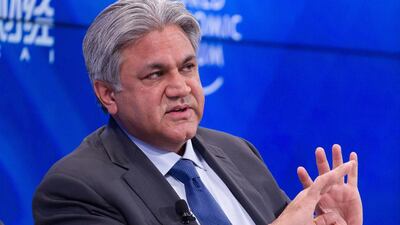Two separate examinations into the alleged misuse of money at embattled Middle Eastern investment firm Abraaj Group found potential irregularities in its $1 billion health-care fund as well as its other vehicles, according to people with knowledge of the matter.
An audit commissioned some months ago by four high-profile investors including the Bill & Melinda Gates Foundation suggested that money from the health-care fund was being diverted elsewhere, said the people, asking not to be identified because the matter is private. Preliminary findings from a separate review by Deloitte - at Dubai-based Abraaj’s request - also threw up potential discrepancies in the accounting at some of the other pools, they said.
Deloitte, whose review is still underway, is discussing its findings so far with the Dubai Financial Services Authority, the people said. The markets regulator has yet to decide on a course of action, they said.
Abraaj’s leadership team “has been focused on executing on the re-organisation of the business, engaging with all investors, and driving value in Abraaj’s portfolio companies across its operating markets” since announcing broad changes to the company’s governance and operating model in February, a representative for the firm said in a statement. Abraaj didn’t comment on the two reviews of its operations. Spokesmen for the DFSA, Deloitte and the Gates Foundation declined to comment.
The findings may lead to intensified scrutiny by regulators at a crucial juncture for Abraaj as the Middle East’s biggest buyout firm attempts to sell a stake in its funds business while simultaneously trying to placate angry investors. Despite founder Arif Naqvi ceding control of the asset management unit in February and new managers pledging to introduce more rigorous internal controls, the firm has been roiled by liquidity concerns, prompting asset sales and job cuts.
Founded in 2002 by the Karachi, Pakistan-born Mr Naqvi, Abraaj attracted global investors by offering easy access to fast-growing markets in the Middle East at a time when private equity in the region was still in its infancy and there were few competitors. Along the way, the firm transformed itself into an investment giant with almost $14bn in assets held far beyond its home market on behalf of sovereign wealth funds, large pension funds, companies and foundations.
In February -- less than a week after the Wall Street Journal broke the news that the four investors had hired Ankura Consulting Group to investigate what had happened to the money they injected into Abraaj’s health fund -- the buyout firm said an internal review by KPMG had been completed, and found that all payments and receipts were properly accounted for. Representatives for KPMG didn’t return calls and emails seeking comment.
The discrepancy between money it collected from investors and the amounts it invested was due to “unforseen political and regulatory developments” in several markets that led to delays, Abraaj has said. An agreement with clients allowed it to hold on to the cash until it could be deployed, according to the firm, which also said that unused capital was returned to investors at the end of December.
_________________
Read more:
Abraaj said to tell creditor stake sales will aid liquidity possible issues
Abraaj to delay hospital IPO until it resolves issues with investors
_________________
Ankura reported finding instances of irregularities in the health-care fund, including the diversion of funds from that pool to other investments, the people said. A representative for Ankura declined to comment.
The review by KPMG, Abraaj’s restructuring efforts and the appointment of independent consultants to review its corporate governance failed to appease some investors. Meanwhile, Abraaj returned capital in a new global fund, temporarily halted fresh investments, delayed an initial public offering or sale of its North African hospitals business, and pared about 15 per cent of its total workforce.
Abraaj’s woes have already sent shock waves through the ranks of local dealmakers, contributing to bringing private equity deals and fundraising in the region to a halt, according to interviews with about a dozen financial industry executives who requested anonymity because the matter is sensitive.
Earlier this month, the firm sought to reassure its biggest creditors about any potential liquidity issues, telling them it was close to finding a buyer for a controlling stake in its fund management unit and disposing of its Pakistani utility, people familiar with the matter said. Colony NorthStar, the private equity and real estate firm run by billionaire Tom Barrack, is a front-runner for the holding in the asset management firm, they said.

